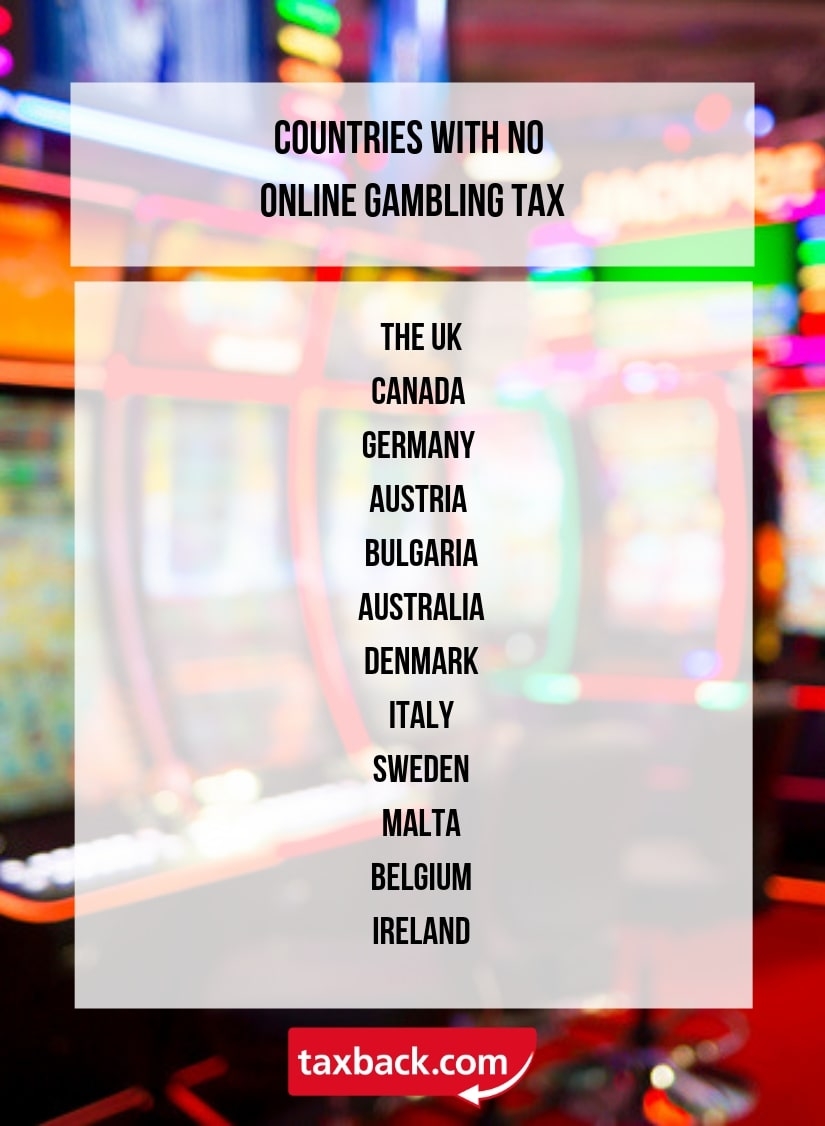Gambling Taxes Uk
Gambling Taxes in the UK. All kinds of gambling activities in the United Kingdom are subject to taxation. Land-based sportsbooks and casinos, as well as online operators, have to pay a tax, which is usually a percentage of the revenue or other form, depending on the type of gaming services. American citizens are taxed on their gambling winnings in their home country, UK citizens aren’t (in their’s). So, if you travel to Las Vegas, get lucky, and win big on the slots (say the Siberian Storm slot) or the blackjack tables, or you beat the roulette table with the Martingale or the Labouchere system, do you have to pay tax? Register For Gambling Tax Aimed at companies, this Gov.UK page describes the measures needed to offer remote gambling to UK players. Gambling Duties - News & Announcements Keep up-to-speed with the latest notifications and developments in gambling tax from the HMRC. Gambling (Licensing & Advertising) Act 2014.
Can gambling be taxed as earnings? Julie Butler considers a recent case on gambling which covers issues frequently raised in the TaxationWeb forum.
Gambling and Taxation
Essentially betting is ‘tax-free’ in the UK – the professional gambler is outside the scope of tax. This is confirmed in HMRC’s Business Income Manual at BIM22015. The basic position is that betting and gambling, as such, do not constitute trading. This is not a new precedent either. Rowlatt J said in Graham v Green (1925) 9 TC 309: “A bet is merely an irrational agreement that one person should pay another person on the happening of an event.”
This decision has stood the test of time. In an Australian case, Evans v FCT (1989) 20 ATC 4540, Hill J said: “There has been no decision of a court in Australia nor, so far as I am aware, in the United Kingdom where it has been held that a mere punter was carrying on a business.”
A recent case has tested this principle. In Hakki v Secretary of State for Work and Pensions [2014] EWCA Civ 530 Mr Hakki was a professional poker player who made a living from his poker winnings. An order for Mr Hakki to pay child maintenance was applied for through the Child Support Agency by the mother of his children (Mrs Blair).
In accordance with the Social Security Contributions and Benefits Act 1992 (SSCBA 1992) s2(1)(b) and the Child Support (Maintenance Assessment and Special Cases) Regulations 1992 Mr Hakki opposed the application on the grounds that his poker winnings did not constitute ‘earnings’ from gainful employment and therefore he was not a self-employed earner, i.e., the profits arose from gambling.
It is very interesting to note that the Upper Tribunal found that for the purposes of SSCBA 1992, gambling could be a trade, profession or vocation, and that Mr Hakki could be said to be ‘gainfully employed’ as a ‘self-employed earner’ and therefore should pay child maintenance to Mrs Blair.
Mr Hakki appealed to the Court of Appeal. Mrs Blair’s barrister argued that Hakki’s poker playing amounted to a trade similar to that of a professional golfer or tennis player. The barrister relied on the findings that Mr Hakki:
- Set a target sum to win after which he stopped;
- Selected the table which was most likely to pay him;
- Appeared on a television programme about poker for a few weeks, made it to the final and won a prize;
- Was the owner of his own website and communicated his strategies for online poker;
- Had his poker results over seven or eight years published on two other poker websites; and
- Chose the locations for playing poker.
The Court of Appeal found that even collectively these findings do not amount to such organisation as to constitute a trade, profession or vocation. The Court of Appeal found that gambling is not a trade and the factors surrounding Mr Hakki must be common to many successful gamblers, e.g., choice of location, setting target sums and the table most likely to pay. It was found that isolated appearances on television and Mr Hakki having his own website was not in 2014 evidence of organisation amounting to a trade or profession. It is also very interesting to note that the court was persuaded that it is possible to accept a case in which a gambler’s winnings might be taxable, but it found that in this case there was no organised seeking of emoluments and therefore no gainful employment.


This case adds to the ongoing discussion about whether a gambler in certain circumstances can be taxed on his or her winnings.
Will there be future legislation that brings gambling profits into the scope of taxation? There has apparently been nothing to indicate that this is under review despite the advent of very sophisticated techniques to make substantial profits from gambling. It has to be asked, what is “the case” that the courts can find as taxable? Is that perhaps the case with sophisticated software?
Back to Tax ArticlesGambling Taxes 2020
Please register or log in to add comments.
Click on the button below to get the most burning tax topics delivered to your email.
Gambling Taxes In Iowa
 Subscribe to Our Newsletter
Subscribe to Our Newsletter